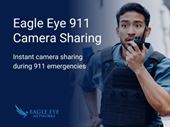Thomas Lausten, who was appointed as CEO for Mobotix four years ago, stresses that the company now is investing heavily in AI, not least by expanding the R&D team and intensifying its cooperation with Konica Minolta. Mobotix is starting to integrate Konica Minolta’s Forxai – an advanced imaging IoT (AI) technology to “gain competitive advantage by combining intelligent sensor devices, imaging AI (deep learning) and imaging IoT platform”.
New possibilities
“There are many products and services used mainly for security applications. But AI and video surveillance open up new possibilities for using cameras much more”, says Thomas Lausten.
He stresses there can be anything from environmental factors for windmill surveillance to marketing purposes in retail where cameras can be used to detect and analyse behaviour for commercial purposes or for healthcare applications. In these places, there are generally already security cameras, but they have mainly been used for security reasons.
“I think that AI will provide some of the biggest new market opportunities for us as an industry in the next years. This really opens up new markets because the software can now be used efficiently”, says Thomas Lausten.
Business intelligence
Mobotix has identified six vertical markets: industry & production, energy, utilities and mining, retail, education & science, healthcare and government. In all these, Mobotix is figuring out which problems people and businesses are facing and which of these can be solved by security cameras with AI.
Today almost all retail shops have security cameras, but many of them are very basic and have been installed in order to provide evidence when there is theft. Thomas Lausten sees many opportunities for video analytics in retail. For example, which kind of people are coming to the shop and during which hours? Perhaps people in suits tend to show up around 5 pm when office hours end. And what do people in suits buy on a Friday afternoon? The store might for example want to market some nice food and wine when they show up.
“If you detect what kinds of people are coming into your supermarket and when, you can change commercial offerings on your screens, based on customer data, gathered from your cameras”, says Thomas Lausten.
The same thing goes for hotels, restaurants, or other commercial buildings.
More specialisation
This focus on new values that video surveillance can bring to different verticals is both changing how companies like Mobotix and their partners and system integrators work: more specialisation is needed.
“Yes, this is what we are facing in the years to come. We have for example already certain partners that are specialised in health care and its needs. I also believe that we as manufacturers need to adapt towards that and think more about what the customers need rather than what the technology and apps can do. Being a salesperson selling video surveillance today compared to five years ago is fundamentally two completely different jobs”, Thomas Lausten says.
NDAA more important
Mobotix considers cyber security as one of the company’s core competences. Today, a lot of the intelligence and data management is done in the cameras, which requires strong cyber security. The latest Mobotix cameras have received the Syss IT security certificate, and the company also has a number of local certifications.
“We are asking third party companies to basically carry through cyber-attacks on Mobotix cameras on a regular basis to make sure there are no cyber security vulnerabilities”, Thomas Lausten says.
However, he also thinks that NDAA (National Defense Authorization Act) compliance has become more important, not just in the US but in Europe and also in Asian countries. NDAA compliance means there are no Chinese components in the cameras.
“The EU parliament took down their cameras a few months ago, replacing them with western manufactured cameras. This trend is increasing and might be both political but also about cyber security.”
The new normal
Another trend that he sees is the change towards more subscriptionbased business models, although the old more product-oriented business model is still dominating.
“If we look at our business, the US market is the leader in the subscription-based business models, and it is driven by the general market there. You cannot buy a car with cash, everything is subscription-based.”
Many things are also moving fast in the industry and video analytic apps are being developed quickly.
“One and a half years ago, no one could scan faces with masks. Today you cannot find any kind of face detection software that is not able to detect people wearing masks”, Thomas Lausten concludes.











